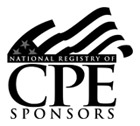CPA - medium firm
Nonprofit Professional
Other
There seems to be a universal belief among church leaders that the church funds won’t be bothered by anyone. Church funds are tempting to insiders as well as outsiders and their imaginations can devise numerous ways to get the funds as well as other assets. Managers and leaders must be made aware of the potential for theft and be trained to not only stop it but to prevent it.
-
To understand the inherent unawareness church leaders have about theft of churches financial assets.
-
To gain an insight into church leaders mindset that no one would take from a church.
-
To learn how easy it is for observant people to grasp the wealth of a church
-
To learn the lack of financial acumen many church leaders have
-
To gain an understanding of why churches with annual revenues of between $ 350,000 & $ 450,000 are vulnerable to several kinds of fraud

Jack Oliver
Westminster Investigative Consultants, LLC
Senior Partner
jack@pfrealty.net
304 363-2721
Jack L. Oliver, Senior Partner, is a Certified Public Accountant with more than 40 years experience, including Price Waterhouse & Co. Mr. Oliver is a licensed CPA in Maryland, West Virginia, California, and Minnesota and has owned his CPA firm since 2003. He is a veteran of the United States Air Force (1960-1963) and a graduate of West Virginia University in 1966. Mr. Oliver also has a broker’s license and is a graduate of the Realtor’s Institute (GRI); he became certified as a CDEI in 2009. He operates a business school which conducts financial seminars for financial institutions’ officers and staff throughout the United States. Mr. Oliver is a member of several professional and civic organizations including the AICPA and the West Virginia Society of CPAs.
- To receive CPE credit, you must register for the webinar before it starts.
- CPE is available to all eligible participants within 24 hours of each webinar.
- To receive CPE for multiple attendees, at least one person must sign up for the webinar. The post-webinar email contains a link to instructions for the proctor letter. Alternatively, you may log in to your account following the webinar and click on the MY ACCOUNT button to find a link to instructions. For paid courses, payment needs to be made for each attendee before credit will be issued.

NASBA Approved
CPAacademy.org (Sponsor Id#: 111889) is registered with the National Association of State Boards of Accountancy (NASBA) as a sponsor of continuing professional education on the National Registry of CPE Sponsors. State boards of accountancy have final authority on the acceptance of individual courses for CPE credit. Complaints regarding registered sponsors may be submitted to the National Registry of CPE Sponsors through its website: www.nasbaregistry.org.
CPAacademy.org 1685 S. Colorado Blvd, Suite #205, Denver, CO 80222





